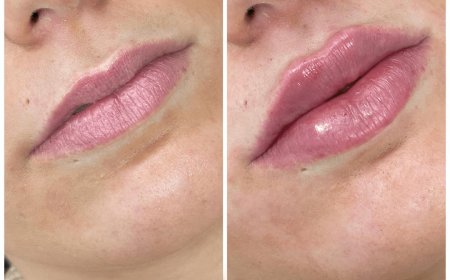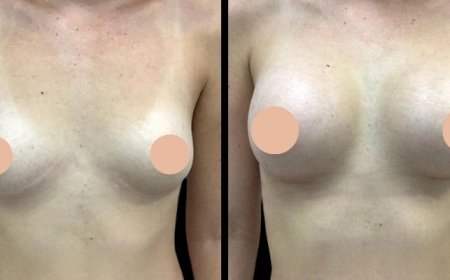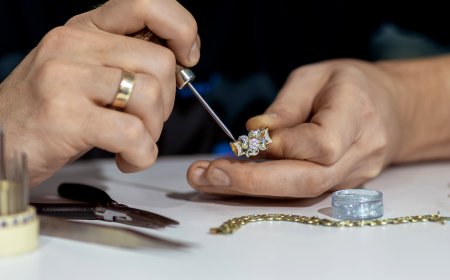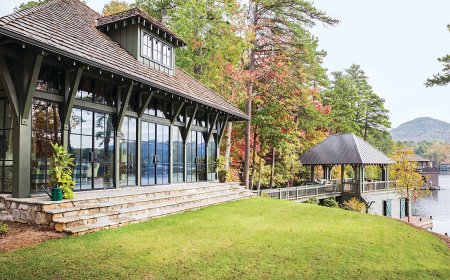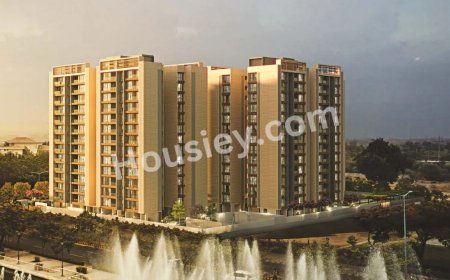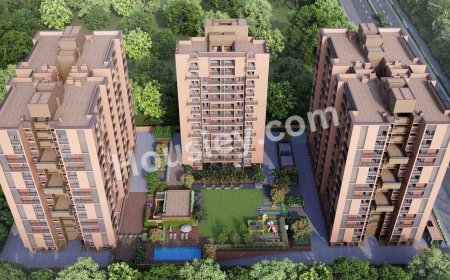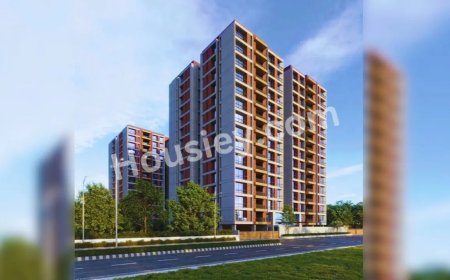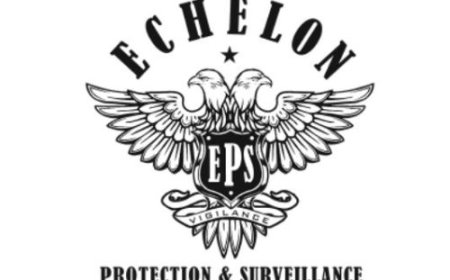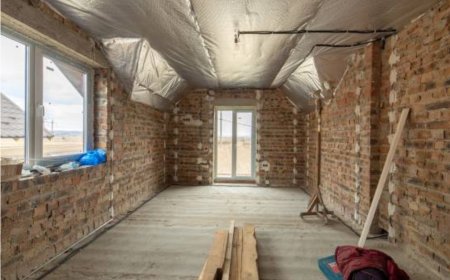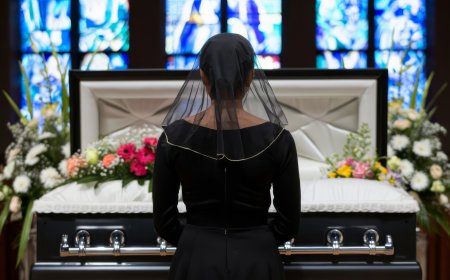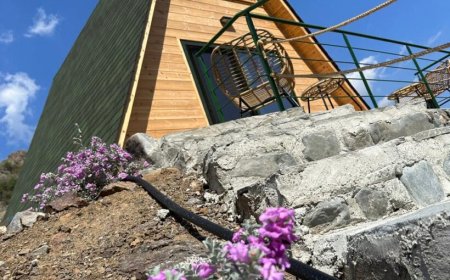Top 10 London Spots for Jazz Music
Introduction London has long been a global hub for jazz music, blending rich cultural influences with a deep-rooted tradition of live improvisation and sonic experimentation. From the smoky backrooms of Soho to the restored Victorian halls of South London, the city offers a diverse tapestry of jazz venues where talent thrives and audiences connect with music on a profound level. But not all jazz s
Introduction
London has long been a global hub for jazz music, blending rich cultural influences with a deep-rooted tradition of live improvisation and sonic experimentation. From the smoky backrooms of Soho to the restored Victorian halls of South London, the city offers a diverse tapestry of jazz venues where talent thrives and audiences connect with music on a profound level. But not all jazz spots are created equal. In a city teeming with venues claiming to be the best, how do you know which ones truly deliver authenticity, consistent quality, and an immersive experience?
This guide cuts through the noise. Weve curated a list of the top 10 London spots for jazz music you can trustvenues that have stood the test of time, earned the respect of musicians, and cultivated loyal, discerning audiences. These are not just places to hear jazz; they are institutions where the spirit of the genre lives and breathes. Whether youre a seasoned jazz aficionado or a curious newcomer, these venues offer more than performancesthey offer legacy, integrity, and unforgettable nights.
Before we dive into the list, lets explore why trust matters when choosing where to experience jazz in London.
Why Trust Matters
When seeking out live jazz, trust isnt a luxuryits a necessity. Unlike pop concerts or classical recitals, jazz thrives on spontaneity, nuance, and the intimate exchange between performer and audience. A venues reputation reflects its commitment to musical integrity, acoustic quality, and artist respect. A poorly managed space with bad acoustics, inconsistent lineups, or indifferent staff can ruin even the most talented performance.
Trusted jazz venues prioritize the music above all else. They book musicians based on skill and originality, not popularity. They maintain sound systems tuned for the dynamic range of live jazzwhere the whisper of a brush on snare and the breath of a saxophone carry equal weight. They foster environments where audiences listen, not talk. And they often operate with deep roots in the local community, built over decades of dedication.
Many venues in London market themselves as jazz clubs, but only a handful have earned the right to be called authentic. Some rely on tourist traffic, offering generic sets with little connection to the genres history. Others are run by passionate curators who treat every performance like a sacred ritual. The difference is palpable.
Trust is earned through consistency. A venue that books rising stars alongside jazz legends, maintains a loyal following, and receives organic praise from musicians themselves is a venue worth your time. This guide is built on that principle: weve selected only those spots that have proven, over years and hundreds of performances, that they are worthy of your attention.
By choosing trusted venues, youre not just attending a showyoure supporting the ecosystem that keeps jazz alive. Youre helping sustain venues that pay musicians fairly, invest in acoustics, and preserve the cultural heritage of a genre that shaped modern music.
Top 10 London Spots for Jazz Music
1. Ronnie Scotts Jazz Club
Open since 1959, Ronnie Scotts is more than a venueits a landmark. Founded by saxophonist Ronnie Scott and fellow musician Pete King, this Soho institution has hosted the likes of Miles Davis, Ella Fitzgerald, John Coltrane, and Nina Simone. Today, it remains the gold standard for jazz in London, drawing international stars and rising talent alike.
The clubs intimate layout, with two levels and a capacity of just under 200, ensures exceptional acoustics. Every seat feels close to the stage, and the sound system is meticulously calibrated to preserve the warmth of brass, the resonance of upright bass, and the delicate attack of piano keys. The staff are steeped in jazz history, often able to recount stories of past performances with the reverence of archivists.
While tickets can be pricey and reservations essential, the experience justifies the cost. Weekend sets often feature world-renowned artists, while weekday nights showcase emerging British talent. The venues strict no-talking policy during performances is enforced with quiet dignity, ensuring an atmosphere of deep listening.
For those seeking the pinnacle of London jazz, Ronnie Scotts is non-negotiable. Its not just a clubits a pilgrimage site.
2. The Vortex Jazz Club
Nestled in the heart of Dalston, The Vortex has been a beacon for experimental and avant-garde jazz since 1989. Unlike the polished elegance of Ronnie Scotts, The Vortex embraces raw, boundary-pushing sound. Its the go-to venue for free jazz, fusion, and cross-genre collaborations that challenge conventional definitions of jazz.
The space is modesta converted former pub with exposed brick, low lighting, and a small stage that feels more like a living room than a concert hall. But that intimacy is its strength. Audiences here come to be surprised, not entertained. Musicians frequently debut new compositions, and the crowd is expected to engage intellectually as much as emotionally.
Regulars include local legends like Pete Wareham, Laura Jurd, and Shabaka Hutchings, who often perform here before taking their projects to larger festivals. The Vortex also hosts weekly open mic nights for students and emerging artists, making it a vital incubator for Londons next generation of jazz innovators.
What sets The Vortex apart is its unwavering commitment to artistic freedom. There are no commercial pressures here. No playlists dictated by algorithms. Just pure, unfiltered musical exploration.
3. PizzaExpress Jazz Club (Soho)
Located beneath the famous PizzaExpress restaurant in Soho, this venue has quietly become one of Londons most reliable jazz spots since the 1960s. Though it shares a building with a popular dining chain, the jazz club operates as a distinct entitywith its own entrance, dedicated sound engineers, and a lineage of legendary performers.
Its reputation is built on consistency. The programming is carefully curated to balance accessibility with depth. You might hear a smooth trio one night and a fiery Afro-Cuban ensemble the next. Many musicians consider it a rite of passage to perform here, especially those transitioning from music school to professional circuits.
The acoustics are exceptional for a basement venue, thanks to years of acoustic tuning and soundproofing. The seating is comfortable, the lighting is warm, and the staff treat jazz patrons with the same respect as fine-dining guests. Its a rare blend of casual ambiance and professional rigor.
While it attracts a slightly more mainstream crowd than The Vortex or Ronnie Scotts, PizzaExpress never compromises on quality. Its booking team has an uncanny ear for talent, often spotting artists before they break into the mainstream.
4. 606 Club
Hidden in the quiet streets of Chelsea, the 606 Club is a favorite among musicians and critics alike. Founded in 1987 by jazz promoter and saxophonist John Critchinson, its named after the telephone code for the original location in West Kensington. The venues charm lies in its understated elegance and unwavering focus on musical excellence.
The room is small, with only 70 seats arranged in a semi-circle around the stage. This setup creates an unparalleled sense of connection between performer and audience. Theres no bar at the frontjust a small service area in the backensuring that attention remains on the music.
Regular performers include some of the UKs most respected jazz figures: Alan Barnes, Liane Carroll, and Stan Sulzmann. The 606 is also known for its Artist in Residence program, where a single musician or ensemble performs a week-long residency, developing new material in front of a devoted audience.
Unlike larger clubs, the 606 doesnt rely on tourist traffic. Its audience is local, loyal, and deeply knowledgeable. Youll often hear quiet applause after a complex solonot because its polite, but because its earned. This is a place where jazz is treated as art, not spectacle.
5. The Bulls Head (Barnes)
Tucked away in the leafy suburb of Barnes, The Bulls Head is one of Londons most beloved jazz pubs. What began as a traditional British pub in the 19th century transformed in the 1970s into a jazz haven under the stewardship of owner and saxophonist John Cumming.
Its charm lies in its authenticity. No velvet ropes. No ticket queues. Just a small stage tucked into the corner, a handful of wooden tables, and a crowd that comes as much for the conversation as the music. The sound is warm and naturalno PA system overwhelms the room. The piano is an old upright, the drums are minimal, and the bass is often played with fingers, not a pick.
Weeknight performances are intimate, often featuring local musicians whove been playing here for decades. Sunday afternoon sessions are legendary, drawing families, retirees, and students alike. The vibe is inclusive, warm, and deeply British.
What makes The Bulls Head trustworthy is its resistance to commercialization. It doesnt market itself on Instagram. It doesnt host corporate events. It simply plays jazzwell, consistently, and with heart.
6. The Jazz Cafe (Camden)
While often associated with soul, funk, and world music, The Jazz Cafe in Camden has a rich and enduring jazz legacy. Opened in 1990 in a former Victorian music hall, the venue has hosted jazz icons like Herbie Hancock, Dianne Reeves, and Gregory Porterall before they became household names.
The Jazz Cafe offers a larger stage and a capacity of over 700, making it ideal for touring artists who bring orchestral or fusion jazz to London. The sound system is state-of-the-art, and the lighting design enhances the mood without distracting from the performance.
What sets it apart is its eclectic programming. One night might feature a traditional bebop quartet; the next, a jazz-meets-electronica project from a young London producer. The venues curators have a keen sense of genre evolution, ensuring jazz remains dynamic and relevant.
Though its more commercial than some of the smaller clubs, The Jazz Cafe maintains high artistic standards. Musicians consistently praise its technical support and respectful audience. Its a place where jazz growsnot in isolation, but in conversation with other sounds.
7. Cecil Sharp House
Home to the English Folk Dance and Song Society, Cecil Sharp House in Camden is an unexpected but vital jazz destination. While primarily known for folk music, its performance space hosts a growing number of jazz eventsparticularly those exploring the intersection of jazz and British folk traditions.
Artists like Eliza Carthy, Martin Carthy, and folk-jazz fusion pioneers such as The Imagined Village regularly perform here. The acoustics are pristine, the space is serene, and the audience is unusually attentive. Theres a quiet reverence here thats rare in Londons music scene.
What makes Cecil Sharp House trustworthy is its intellectual depth. Events are often accompanied by talks, workshops, or historical context, deepening the listeners appreciation. Its not just about hearing jazzits about understanding its roots, its evolution, and its cultural dialogue with other traditions.
For those seeking jazz with a distinctly British soul, this is one of the most rewarding venues in the city.
8. The Red Rose (Clapham)
Often overlooked by tourists, The Red Rose in Clapham is a hidden gem cherished by locals and musicians who value authenticity over glamour. Housed in a converted 19th-century terrace, its a no-frills space with mismatched chairs, dim lighting, and a stage that looks like its been there since the 1980s.
But dont let the modest dcor fool you. The music here is extraordinary. The venue specializes in hard bop, modal jazz, and post-bopgenres that demand technical precision and emotional depth. Many of the musicians who play here are former students of the Royal Academy of Music or the Guildhall, now honing their craft in front of a discerning crowd.
Theres no cover charge on weeknights, and the bar serves simple drinks at pub prices. The owner, a retired jazz drummer, still introduces the bands himself. He knows every musician by name and often joins in for a drum solo after the set.
The Red Rose doesnt advertise. Its reputation spreads through word of mouth. If youre looking for jazz thats unpolished, honest, and deeply felt, this is your place.
9. The 100 Club (Oxford Street)
One of the oldest music venues in London, The 100 Club has hosted everything from punk rock to swing. But its jazz legacy is profound. Since the 1940s, its been a stage for legends like Louis Armstrong, Charlie Parker, and Billie Holiday. Today, it continues to champion jazz in its most vital forms.
The venues compact size and historic brick walls create a natural reverb that enhances live sound. The stage is low, the lighting is soft, and the crowd is often packed shoulder-to-shouldernot out of chaos, but out of devotion.
Weekend sets often feature revivalist bands playing classic swing and bebop, while midweek nights spotlight experimental collectives. The 100 Clubs booking team has an uncanny ability to blend nostalgia with innovation.
Its a rare venue where you can hear a 90-year-old trombonist play alongside a 22-year-old electronic jazz producerand both are met with equal enthusiasm. Thats the power of trust: the audience knows that whatevers on stage, its been chosen with care.
10. Jazz Caf at The Albany (Deptford)
Located in the cultural heart of South London, The Albany is a community arts center that houses one of the citys most vibrant jazz scenes. Its Jazz Caf is not a commercial club but a grassroots space supported by local funding and passionate volunteers.
Here, jazz is community-driven. Performers are often from the local areastudents, teachers, and self-taught musicians whove spent years perfecting their craft in backyards and community halls. The audience is equally diverse: families, elders, teenagers, and artists from all backgrounds.
Setlists are rarely rehearsed. Sets often begin with a question: What do you feel like playing tonight? The result is raw, unpredictable, and deeply human. Theres no VIP section. No bottled water for sale. Just music, connection, and shared silence after a moving solo.
The Jazz Caf at The Albany is a testament to jazz as a living, evolving art form rooted in place and people. It doesnt seek fame. It doesnt need validation. It simply existsand in doing so, it reminds us why jazz matters.
Comparison Table
| Venue | Location | Capacity | Style | Atmosphere | Trust Factor |
|---|---|---|---|---|---|
| Ronnie Scotts Jazz Club | Soho | 180 | Traditional / International | Elegant, intimate, disciplined | Exceptional |
| The Vortex Jazz Club | Dalston | 120 | Avant-garde / Experimental | Raw, intellectual, underground | Exceptional |
| PizzaExpress Jazz Club | Soho | 150 | Accessible / Contemporary | Polished, welcoming, consistent | Very High |
| 606 Club | Chelsea | 70 | Modern / Mainstream | Refined, quiet, musician-focused | Very High |
| The Bulls Head | Barnes | 80 | Traditional / Pub Jazz | Warm, communal, unpretentious | Very High |
| The Jazz Cafe | Camden | 700 | Fusion / World Jazz | Vibrant, energetic, diverse | High |
| Cecil Sharp House | Camden | 200 | Folk-Jazz Fusion | Serene, thoughtful, educational | High |
| The Red Rose | Clapham | 60 | Hard Bop / Post-Bop | Unpolished, honest, local | High |
| The 100 Club | Oxford Street | 400 | Swing / Revivalist | Historic, gritty, passionate | High |
| Jazz Caf at The Albany | Deptford | 150 | Community / Grassroots | Authentic, inclusive, heartfelt | Exceptional |
FAQs
What makes a jazz venue trustworthy in London?
A trustworthy jazz venue prioritizes musical integrity over commercial appeal. It books musicians based on skill and originality, maintains excellent acoustics, enforces respectful listening behavior, and fosters long-term relationships with artists and audiences. Trust is built over time through consistent qualitynot marketing.
Are these venues expensive to attend?
Prices vary. Ronnie Scotts and The Jazz Cafe charge higher ticket fees due to their size and international acts. However, venues like The Bulls Head, The Red Rose, and The Albany offer affordable or even free entry, especially on weeknights. Many smaller clubs operate on a pay what you can or donation basis, ensuring accessibility.
Can I bring food or drinks to these venues?
Most venues serve drinks and light snacks. Ronnie Scotts, PizzaExpress, and The Jazz Cafe offer full menus. Smaller venues like The Vortex and The 606 Club provide wine, beer, and soft drinks but no full meals. Always check ahead if you plan to eat before or after the show.
Do I need to book tickets in advance?
For Ronnie Scotts, The Jazz Cafe, and The 606 Club, booking in advance is essentialoften weeks ahead for popular acts. For smaller venues like The Bulls Head or The Red Rose, walk-ins are common, but arriving early is recommended, especially on weekends.
Are these venues suitable for beginners to jazz?
Absolutely. While some venues cater to seasoned listeners, otherslike PizzaExpress and The Bulls Headare welcoming to newcomers. The key is to arrive with an open mind. Jazz is not about knowing every chord change; its about feeling the emotion in the music.
Do these venues host jazz festivals or special events?
Yes. Many of these venues are key participants in London Jazz Festival (November), EFG London Jazz Festival, and local events like Dalston Jazz Festival. Check individual venue calendars for seasonal programming.
Is photography allowed during performances?
Most trusted jazz venues prohibit flash photography and recording during sets to preserve the intimacy of the experience. Some allow silent photography during intermission. Always ask staff before taking photos.
Whats the best time to visit for the most authentic experience?
WeeknightsTuesday through Thursdayare often when the most serious musicians perform, especially at smaller venues. Sunday afternoons at The Bulls Head and late-night sets at The Vortex offer unique, unfiltered energy. Avoid Friday and Saturday if you prefer a quieter, more focused atmosphere.
How do I know if a musician is truly talented?
Trust the venue. If a musician is booked regularly at Ronnie Scotts, The Vortex, or the 606 Club, theyve been vetted by experts. Listen for dynamics, interaction between players, and the ability to build tension and release. Great jazz isnt about speedits about storytelling.
Are there any jazz brunches or lunchtime sessions in London?
Yes. PizzaExpress and The Bulls Head offer Sunday jazz brunches. Cecil Sharp House occasionally hosts afternoon concerts with tea and cake. These are ideal for experiencing jazz in a relaxed, social setting.
Conclusion
In a city where trends come and go, the top 10 jazz venues highlighted here endure because they honor the essence of the music. They dont chase fame. They dont dilute the art for mass appeal. They create spaces where jazz can be heard as it was meant to bealive, unpredictable, and deeply human.
Each of these venues carries a different thread of jazzs tapestry: the sophistication of Ronnie Scotts, the rebellion of The Vortex, the warmth of The Bulls Head, the community spirit of The Albany. Together, they form a constellation of authenticity that defines Londons jazz soul.
Choosing where to go isnt about checking off a list. Its about seeking connectionwith the music, with the musicians, and with the quiet, shared silence that follows a perfect solo. The best jazz doesnt shout. It whispers. And you have to be still to hear it.
So next time youre in London, skip the crowded bars and curated playlists. Find one of these places. Sit close. Listen deeply. Let the music move through you. Because in these rooms, jazz isnt just performedits preserved, passed on, and lived.





